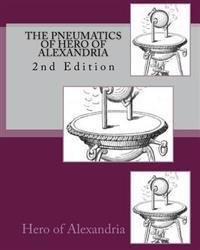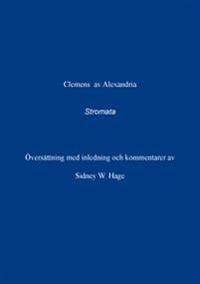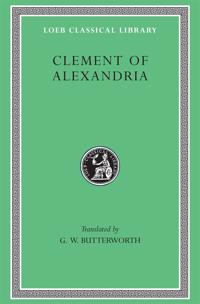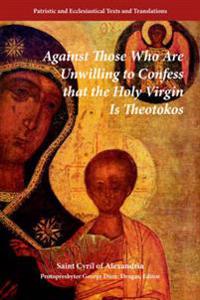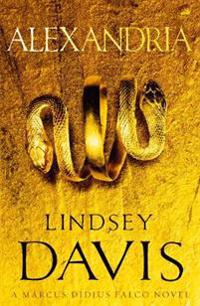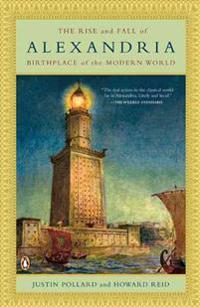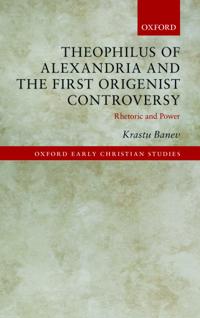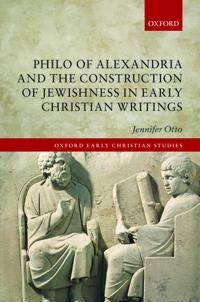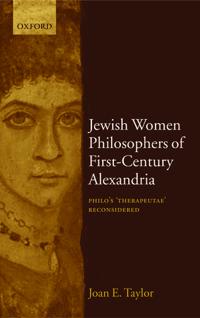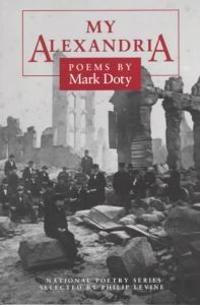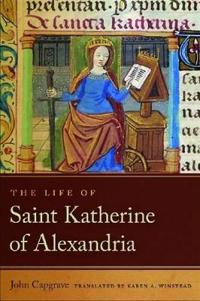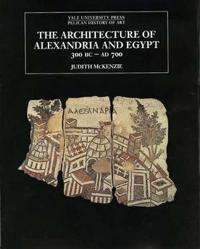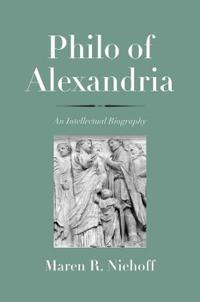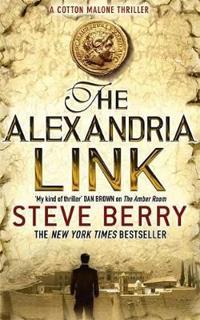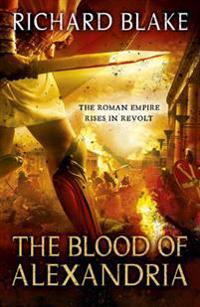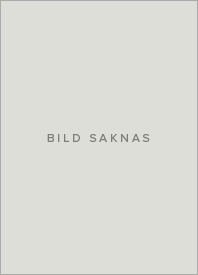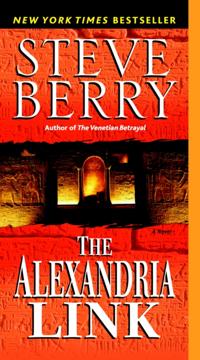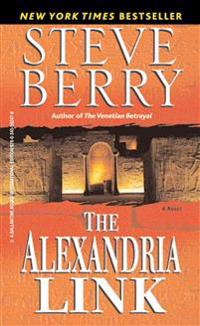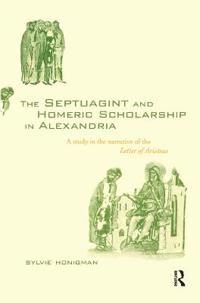The Pneumatics of Hero of Alexandria (Häftad)
avHero Of Alexandria, Bennet Woodcroft
ISBN: 9781449562878 - UTGIVEN: 2009-11Clemens av Alexandria : stromata (Häftad)
avClemens av Alexandria
ISBN: 9789185803170 - UTGIVEN: 200912Texten behöver en förklaring för att den är inte läsvänlig. Clemens har organiserat upp sina idéer och anteckningar under den betecknande titeln Stromateis ? lapptäcke. Den är verkligen en samling hopsydde anmärkningar och lösryckte uppteckningar (hypomnemata). Han har dock upparbetetat d[...]
Exhortation to the Greeks (Inbunden)
avSaint Clement of Alexandria, Clement of Alexandria
ISBN: 9780674991033 - UTGIVEN: 1919-12Clement of Alexandria, famous Father of the Church, is known chiefly from his own works. He was born, perhaps at Athens, about 150 CE, son of non-Christian parents; he converted to Christianity probably in early manhood. He became a presbyter in the Church at Alexandria and there succeeded Pantaenus[...]
Commentary on the Book of Exodus: First Discourse (Häftad)
avOf Alexandria Cyril of Alexandria, Evie Zachariades-Holmberg
ISBN: 9781933275475 - UTGIVEN: 201008Alexandria (Häftad)
avLindsey Davis
ISBN: 9780099515623 - UTGIVEN: 201002For Marcus Didius Falco, agent to the Emperor Vespasian, Alexandria holds fascination and a hint of fear. Beautiful, historic and famously unruly, the great cosmopolitan city wears Roman rule lightly. While his wife, Helena Justina, wants to see the Lighthouse and the Pyramids, Falco has a mission a[...]
The Rise and Fall of Alexandria: Birthplace of the Modern World (Häftad)
avJustin Pollard, Howard Reid
ISBN: 9780143112518 - UTGIVEN: 200711A short history of nearly everything classical. The foundations of the modern world were laid in Alexandria of Egypt at the turn of the first millennium. In this compulsively readable narrative, Justin Pollard and Howard Reid bring one of history's most fascinating and prolific cities to life, creat[...]
Cyril of Alexandria's Trinitarian Theology of Scripture (Inbunden)
avMatthew R. Crawford
ISBN: 9780198722625 - UTGIVEN: 2014-10More exegetical literature survives from the hand of Cyril of Alexandria than nearly any other Greek patristic author, yet this sizable body of work has scarcely received the degree of attention it deserves. In this work, Matthew R. Crawford reconstructs the intellectual context that gave rise to th[...]
Theophilus of Alexandria and the First Origenist Controversy
ISBN: 9780198727545 - UTGIVEN: 2015-04In the age of the Theodosian dynasty and the establishment of Christianity as the only legitimate religion of the Roman Empire, few figures are more pivotal in the power politics of the Christian church than archbishop Theophilus of Alexandria (385-412). This work examines the involvement of archbis[...]
Philo of Alexandria and the Construction of Jewishness in Early Christian Writings
ISBN: 9780198820727 - UTGIVEN: 2018-07This study investigates portrayals of the first-century philosopher and exegete Philo of Alexandria, in the writings of Clement of Alexandria, Origen, and Eusebius.[...]
Eusebians, The: The Polemic of Athanasius of Alexandria and the Construction of the Arian Controversy (Inbunden)
avDavid M. Gwynn
ISBN: 9780199205554 - UTGIVEN: 2006-12-07Athanasius of Alexandria (Häftad)
avDavid M. Gwynn
ISBN: 9780199210954 - UTGIVEN: 201202Athanasius of Alexandria (c.295-373) is one of the greatest and most controversial figures of early Christian history. His life spanned the period of fundamental change for the Roman Empire and the Christian Church that followed the conversion of Constantine the Great, the first Christian Roman empe[...]
Jewish Women Philosophers of First-century Alexandria
ISBN: 9780199291410 - UTGIVEN: 2006-03The first-century ascetic Jewish philosophers known as the 'Therapeutae', described in Philo's treatise De Vita Contemplativa, have often been considered in comparison with early Christians, the Essenes, and the Dead Sea Scrolls. This study, which includes a new translation of De Vita Contemplativa,[...]
My Alexandria (Häftad)
avMark Doty
ISBN: 9780252063176 - UTGIVEN: 1993-01This is the first edition of one of the most highly praised and touching collections of poems to appear in recent years. In selecting it for the "National Poetry Series", Philip Levine said: 'The courage of this book is that it looks away from nothing: the miracle is that wherever it looks it finds [...]
The Life of Saint Katherine of Alexandria
ISBN: 9780268044268 - UTGIVEN: 2011-09The fifteenth-century scholar and Augustinian friar John Capgrave took as his subject the virgin martyr Katherine of Alexandria, who was an anomalous cultural icon, a scholar, and a sovereign whose story unsettled traditional gender stereotypes yet was widely popular throughout Western Europe. Capgr[...]
The Architecture of Alexandria and Egypt c. 300 BC To AD 700 (Pocket)
avJudith McKenzie
ISBN: 9780300170948 - UTGIVEN: 201102This masterful history of the monumental architecture of Alexandria, as well as of the rest of Egypt, encompasses an entire millennium - from the city's founding by Alexander the Great in 331 B.C. to the years just after the Islamic conquest of A.D. 642. Long considered lost beyond recall, the archi[...]
Philo of Alexandria
ISBN: 9780300175233 - UTGIVEN: 2018-02This first biography of Philo of Alexandria, one of antiquity's most prolific yet enigmatic authors, traces his intellectual development from Bible interpreter to diplomat in Rome Philo was a Hellenistic Jewish philosopher who left behind one of the richest bodies of work from antiquity, yet his per[...]
Alexandria (Pocket)
avMichael Haag
ISBN: 9780300191127 - UTGIVEN: 2004-09This is a literary, social and political portrait of Alexandria during the first half of the twentieth century, a high-point in its history. Drawing on diaries, letters and interviews, Michael Haag recovers the lost life of the city, its cosmopolitan inhabitants and its literary characters. Located[...]
The Alexandria Link (Häftad)
avSteve Berry
ISBN: 9780340899298 - UTGIVEN: 200712A hidden treasure. A forgotten truth. Cotton Malone is in trouble. His son has been kidnapped and his bookshop in Copenhagen attacked, all because he is the only man alive who knows the whereabouts of the Alexandria link - the means of locating the most important cache of ancient knowledge ever asse[...]
The Blood of Alexandria (Häftad)
avRichard Blake
ISBN: 9780340951170 - UTGIVEN: 201102The tears of Alexander shall flow, giving bread and freedom ...612 AD. Egypt, the jewel of the Roman Empire, seethes with unrest, as bread runs short and the Persians plot an invasion. In Alexandria, a city divided between Greeks and Egyptians by language, religion and far too few soldiers, the mum[...]
Alexandria Link
ISBN: 9780345497123 - UTGIVEN: 2007-02BONUS: This edition contains an excerpt from Steve Berry's The Columbus Affair and a Cotton Malone dossier. Cotton Malone retired from the high-risk world of elite operatives for the U.S. Justice Department to lead the low-key life of a rare-book dealer. But his quiet existence is shattered when h[...]
The Alexandria Link (Pocket)
ISBN: 9780345502476 - UTGIVEN: 200712Cotton Malone is in trouble. His son has been kidnapped and his bookshop attacked, all because he is the only man alive who knows the whereabouts of the Alexandria link - the means of locating an important cache of ancient knowledge ever assembled. Now, Malone is forced to join the search for a forg[...]
Cyril Of Alexandria (Pocket)
avNorman Russell
ISBN: 9780415182515 - UTGIVEN: 2000-04-13This book presents key selections of Cyril's writings in order to make his thought accessible to students. The writings are all freshly translated and an extended introduction outlines Cyril's life and times.[...]
The Septuagint and Homeric Scholarship in Alexandria
ISBN: 9780415280723 - UTGIVEN: 2003-12The Letter of Aristeas tells the story of how Ptolemy Philadelphus of Egypt commissioned seventy scholars to translate the Hebrew Bible into Greek. Long accepted as a straightforward historical account of a cultural enterprise in Ptolemaic Alexandria, the Letter nevertheless poses serious interpret[...]

